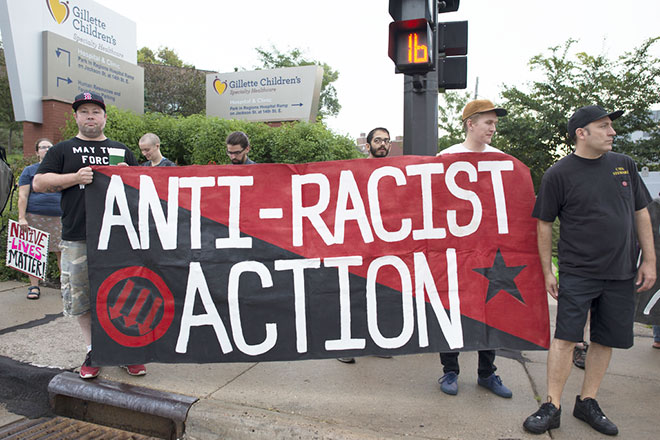IT IS A privilege to be surprised.
I’m sure many watched, surprised and horrified, as the events unfolded in Charlottesville 10 days ago. It can be shocking to see white supremacists — re-branded as the so-called “alt-right” in order to put familiar faces, polo shirts and khaki pants on a chilling and vile worldview — marching through a typically quiet college town with torches in hand, chanting racial epithets and rallying cries long-attributed to Nazis and the Ku Klux Klan. To see so many emboldened, feeling free to walk out into the light without hoods or cloaks, without fear of judgment or ridicule, was startling. And seeing the violence employed by these angry white people result in the death of one brave woman protesting them surprised many.
But to my black and brown friends, and others on the margins, the events in Charlottesville were nothing new. It was just another example of racism, another voice espousing ideals of white superiority, but perhaps in a more overt manner than the ways in which people of color experience micro-aggressions and ignorance daily. Marginalized people do not have the luxury to be surprised by white nationalists finding a louder voice in 2017 because they always are awake to racial inequality, on top of which the structure of this country was built.
It is my experience that for a lot of white people, myself included, systemic oppression has not always been obvious because our lives are not being hindered by it; in fact, we benefit from it. What it’s like to be black and brown in America is likely not a conversation had by many white families at the dinner table. As a result, it might not be a topic about which we are very thoughtful, and although most white people probably do not view themselves as racist or bigoted, we also might not be actively seeking to right wrongs or correct injustices.
